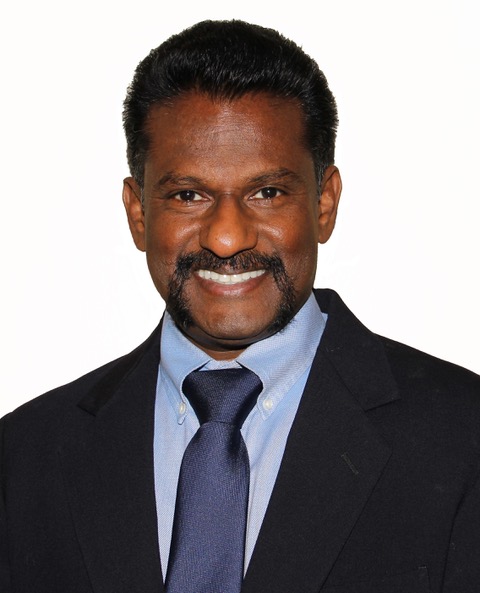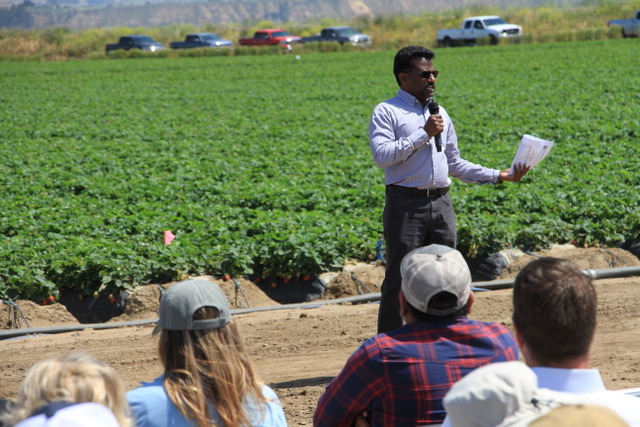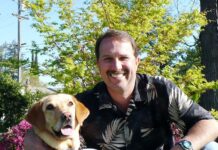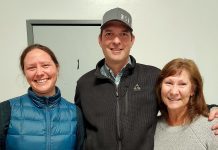
Surendra Dara, UC Cooperative Extension Advisor for Entomology and Biologicals, had a different plan for his career. But, as luck or fate would have it, there was a different adventure in store for him. Dara went from originally wanting to study medicine, to finding himself studying agricultural sciences, to zeroing in on entomology. But even his entomology studies led to something much grander than he could have anticipated.
While Dara studied agricultural sciences at Andhra Pradesh Agricultural University in India, there was a heavy emphasis on insect and mite arthropod pests in the region. With their potential to significantly damage the area’s agriculture, Dara focused on how to protect the crops from those pests.
“Entomology seemed to be one of those disciplines playing a critical role,” said Dara.
After earning his master’s degree, he decided to further his education and research, but found himself bureaucratically edged out of two coveted spots in the Ph.D. program at his university, even though he was one of the two top candidates in entomology. Instead of waiting another year to apply, Dara applied to schools in the U.S. and received a scholarship to study microbial control of the green peach aphid at Virginia Polytechnic Institute and State University (Virginia Tech).
This was just the start of Dara’s international career.
Long Road to California
After earning his Ph.D., Dara spent three years working as an entomopathologist—someone who studies diseases of arthropods— at the International Institute of Tropical Agriculture located in Republic of Benin in West Africa, where he researched microbial control of the cassava green mite, an exotic pest that damages cassava. Cassava is a staple carbohydrate source for millions of Africans, and its tuberous roots are the source of tapioca.
After his time in Africa, Dara emigrated to Canada, earned a postgraduate degree in information technology, then found himself back in the U.S. at the University of Houston for one year before making his way to California.
Though his journey to his current UCCE position sounds adventurous, it wasn’t without its complications.
“Life is interesting,” said Dara. “It teaches you so many lessons, both in success and in failure. While I had several professional successes, there were many challenges in achieving them, and being unable to find a stable job during the early part of my career taught me a lot.”
Dara built an extensive base of professional experience while navigating the tangled world of obtaining the proper work visas.
Just as other life events out of his control steered him towards a certain path, Dara’s career specialties happened the same way. His formal Ph.D. training was in entomology and microbial control, and he eventually found himself in IPM, but happenstance led to other roads of expertise.
Dara’s initial goal was to be the quintessential college professor who taught and advised students and did research. Once he joined extension, he realized the value and the satisfaction of that outreach and research work.
“It is really rewarding. My job is to work with farmers and develop science-based practical solutions. We in extension work on things that can be implemented right away. If it is good work, the impact is immediate, and you can see it very quickly. I think this is the best job I could have, and I really appreciate being able to work in research and extension,” said Dara.
Multiple Disciplines
Dara has been a farm advisor with UCCE for 12 years. He was initially hired on as a strawberry and vegetable advisor, not an entomologist. Because of his education in microbial control, he also had experience and exposure to plant pathology and pathogens.
He also trained strawberry and vegetable growers in regions all over the world, including Africa, Caribbean, Central America, Eastern Europe and Southeast Asia.
Even though he didn’t plan to specialize in strawberries and vegetables, this experience opened up even more doors for him, such as in biostimulants, irrigation and nutrient management. Dara eventually moved further into IPM and sustainable agriculture, developing holistic approaches in his new role as Entomology and Biologicals Advisor.
“Biologicals are in multiple disciplines. They are both for controlling pests and diseases, and to promote plant growth and health as soil amendments, so I continue to do both the agronomic and plant protection work,” said Dara. “I trained to be an entomologist, but now I am doing a lot more than entomology, so my job has given me the opportunity to learn other aspects and work in multiple disciplines.”
Industry’s Future
The ebbs and flows of Dara’s career over the years made him ready and adaptable to whatever came next, which is a skill in itself in an industry that is rapidly changing. Compared to what it was several years ago, Dara noted, there is an increased interest in sustainable— and a significant increase in organic— agriculture. This shift is the sum of many parts focusing on specific areas of agriculture.
For one, there is a spotlight on efforts needed to maintain healthy pollinators. There’s also a focus on fertilizers and nutrient management.
“Previous nutrient management was all about growing crops efficiently and improving productivity, but now the focus is on reducing groundwater contamination and negative environmental impact from excessive use of nutrients,” said Dara.
Among these several changes are the disappearance of older broad-spectrum chemicals in favor of more selective pest management products.
Dara hopes to see sustainable agriculture become mainstream and anticipates continued movement toward a more IPM-based production system. Today’s organic and conventional systems may merge into a single, sustainable system that encompasses the benefits of both methods.
“It’s not that easy for growers to produce organically. And some organic practices aren’t necessarily good for the environment,” said Dara. “If we have a system that takes all our options and balances them out, and uses what is good for the grower, good for the consumer and good for the environment, then that is an ideal system.”












